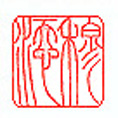— go back one page
— go back to list of extracts
— skip to next extract

We walked a short way from the house, and went through a gate into a walled enclosure, through which ran a small stream. The entrance was surrounded by pale hyacinths and ghostly asphodel. I paused. Against the weathered stone wall they made an enticing point of entry. But then I frowned a little. In legend, hyacinths were named for a young man so beautiful that the gods Apollo and Zephyrus vied for him. The intervention of Zephyrus caused him to be struck by a discus, and he died. The flower was said to have grown from where his blood had soaked the earth. And then white asphodel: it was associated with the Elysian fields, and was a symbol of mourning. Hermippe noticed my double-take, and commented: ‘Beauty! Close to immortality, and close to death’. She smiled, and pointed to a nearby hill just visible above the wall.
‘A spring rises just up there,’ she said, ‘and the stream does not dry out even at the height of summer.’
The walled garden was landscaped so as to create several different environments. One corner was shady and cool; another humid, another arid and exposed to the sun. The earth had been dug and heaped to create different levels and paths. Some paths were straight, others winding. Here and there I noticed steps leading up and down. The paths were made of bricks of various soft tones, some warm, some cooler. The vegetation felt natural. It reminded me of the way in which the best actor, putting all his varied skills into a role, can make the personage seem entirely real. The garden was a small world of its own, varied, peaceful, and fascinating to the eye. I had never seen anything like it. I turned to Hermippē.
(2/6)